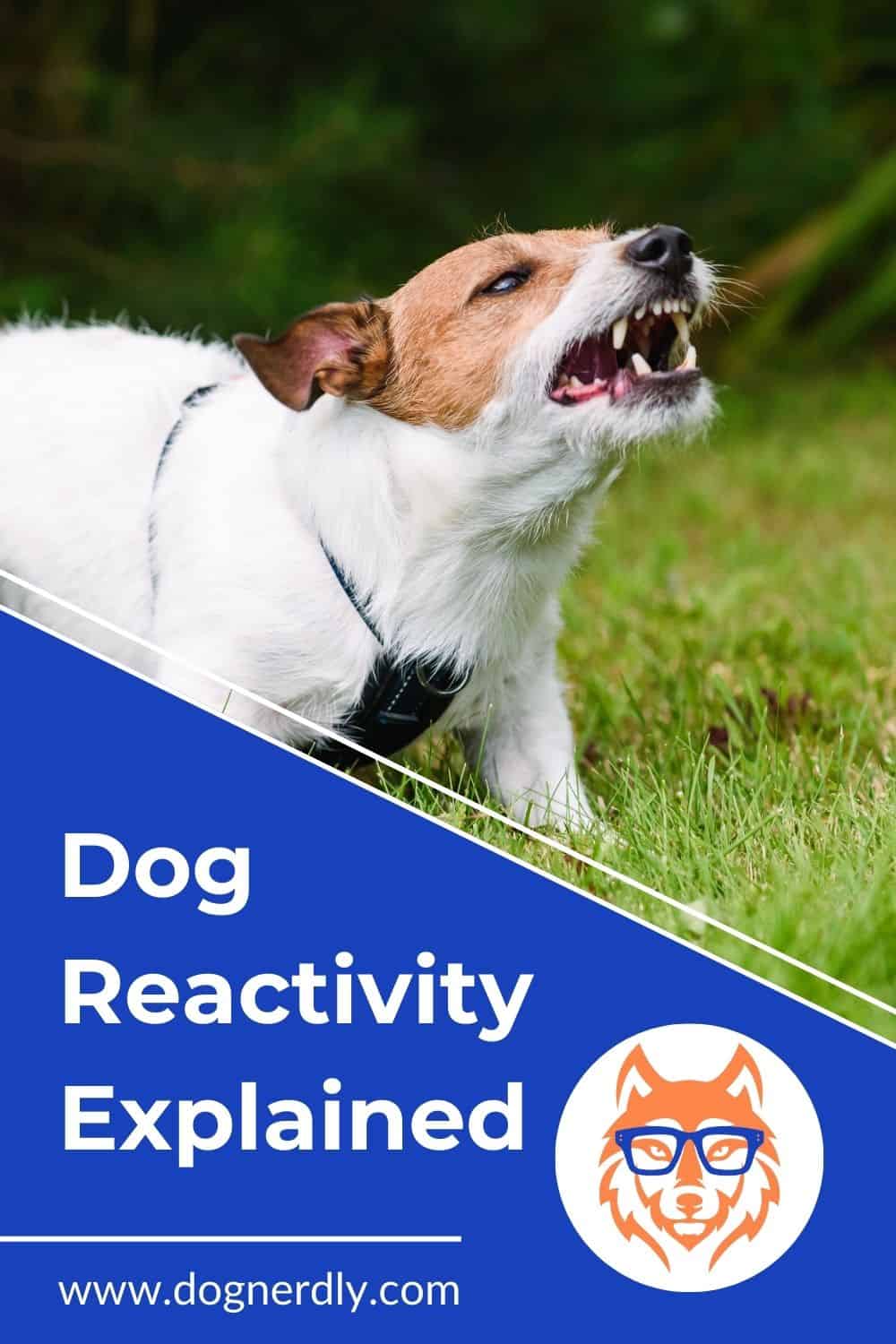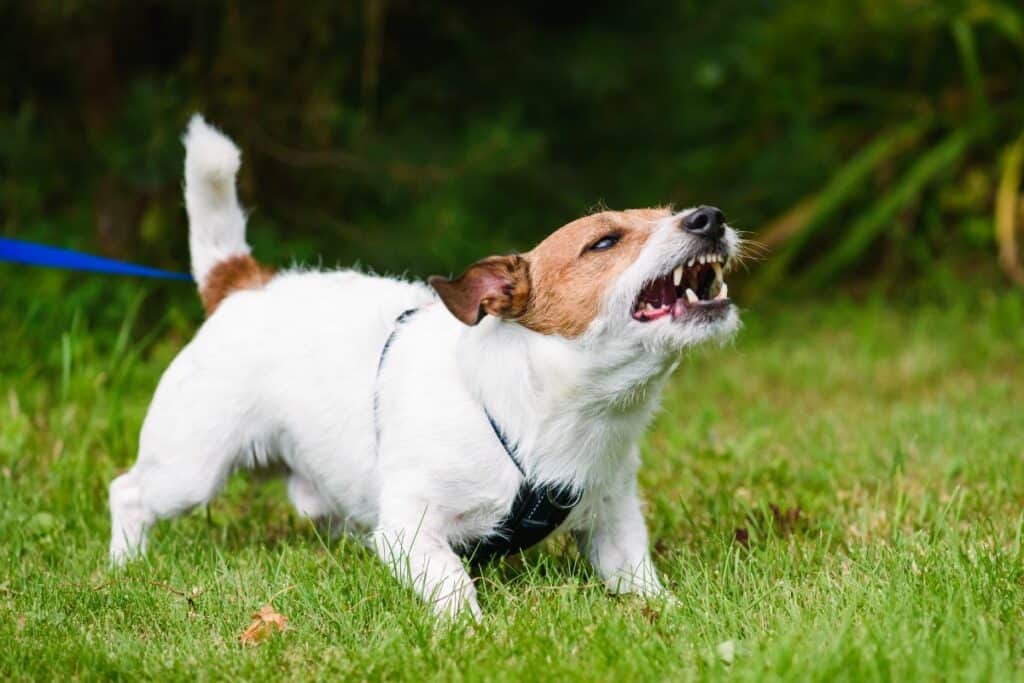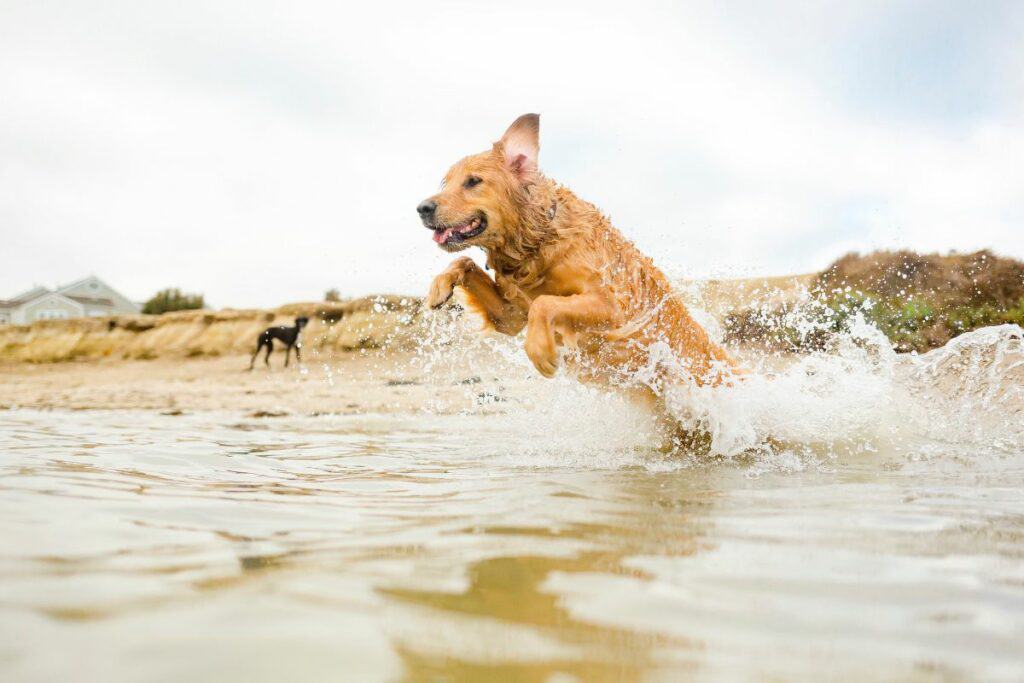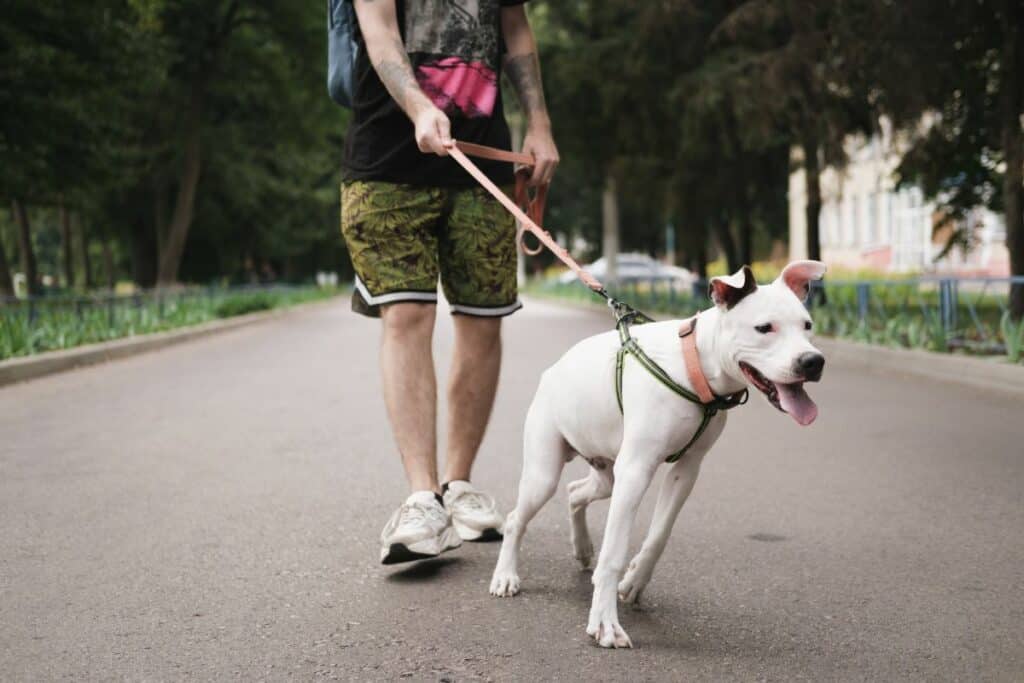Dog reactivity is a growing concern for pet parents. This article is here to answer the question, "what is a reactive dog" and guide you through understanding and addressing reactive behaviors in our furry companions. In this article, we'll explore the definition of a reactive dog, identify common signs of reactivity, delve into the importance of training, and provide practical tips for training and calming reactive dogs. Join me as we embark on a journey to unlock the secrets behind reactive behavior and foster a deeper bond with our canine friends.
As an instructor at The Academy of Pet Careers, I've had the pleasure of working with countless dogs exhibiting reactive behaviors. From leash reactivity to socialization challenges and incessant barking, understanding reactive dogs is crucial for their well-being and for building strong, lasting bonds with their owners.
Definition of a Reactive Dog
At its core, a reactive dog is one that displays exaggerated or extreme responses to certain stimuli in its environment. These responses can range from barking and lunging to fear-based aggression. Reactive behavior often stems from a combination of genetic predispositions, past experiences, and inadequate socialization.
Identifying Reactive Behavior
Spotting reactive behavior in dogs involves observing their body language and reactions to various triggers. Understanding the triggers for reactive behavior, such as encountering unfamiliar dogs or loud noises, is key to addressing it effectively. Common signs include:
- Excessive barking
- Growling
- Pulling on the leash
- Displaying tense or stiff body posture.
Such behaviors are hard to miss as they can be scary for most pet parents. When instances of reactivity occur, it is important to understand how to handle the situation to prevent it from escalating.
Understanding the Importance of Training
Training plays a pivotal role in helping reactive dogs overcome their challenges and lead fulfilling lives. Positive reinforcement techniques, such as rewarding desired behaviors with treats or praise, are preferred because they can help reshape the dog’s response to triggers. The use of punishment should always be avoided as it does more to suppress the emotions, rather than overcome them. Seeking guidance from professional trainers with experience in positive reinforcement or behavior modification protocols can provide invaluable support and expertise in this journey.
NOTE: Overcoming reactivity doesn’t happen overnight. Like with all emotions, it takes time to reprogram a feeling. It is important to have realistic expectations as every dog is different and there are bound to be improvements and setbacks.
How to Train a Reactive Dog
Training a reactive dog requires patience, consistency, and a deep understanding of their individual needs. Here are some foundational tips to help you train your reactive pup:
- Establish Trust and Bonding: Build a strong bond with your dog through positive interactions and gentle handling.
- Desensitization and Counterconditioning: Gradually expose your dog to their triggers in a controlled environment while pairing them with positive experiences, such as treats or playtime.
- Implement Controlled Exposure: Practice controlled exposure to trigger stimuli, starting at a distance where your dog feels comfortable and gradually decreasing the distance over time.
- Consistency and Patience: Be consistent in your training efforts and remain patient as progress may take time. Celebrate small victories along the way and adjust your approach as needed.
These are simplified protocols for overcoming reactivity. There are many nuances such as reading body language and knowing when to increase or decrease the stimuli that may require a trained professional.
How to Calm a Reactive Dog
Calmness is key when dealing with reactive dogs. Here are some strategies to help soothe your furry friend when they are getting too excited:
- Create a Calm Environment: Provide a safe and tranquil space for your dog to retreat to when feeling overwhelmed.
- Utilize Distraction Techniques: Redirect your dog's focus away from triggers by engaging them in activities they enjoy, such as playing with toys or practicing training skills or tricks.
- Incorporate Relaxation Exercises: Proactively teach your dog relaxation cues, such as deep breathing or settling on a mat, to help them cope with stress and anxiety.
- Provide Mental and Physical Stimulation: Keep your dog mentally and physically stimulated with enrichment activities, puzzle toys, and regular exercise to prevent boredom and reduce reactive behavior.
Frequently Asked Questions
Managing a reactive dog's barking requires identifying the triggers and implementing training techniques to address the underlying causes. Additionally, providing mental and physical stimulation, along with teaching alternative behaviors, can help reduce excessive barking.
If your reactive dog displays aggressive behavior, it's essential to seek professional help from qualified trainers or behaviorists. They can assess the situation, develop a tailored training plan, and provide guidance on managing and modifying your dog's behavior safely.
Beware trainers who rely on tools or punishment more than treats and rewards. This form of training will often do more harm than good.
The timeframe for seeing improvement in a reactive dog's behavior can vary depending on various factors, including the dog's history, temperament, and the consistency of training efforts. While some dogs may show progress relatively quickly, others may require more time and patience to overcome their reactive tendencies.
While breed can influence a dog's behavior to some extent, reactivity is not solely determined by breed. Factors such as genetics, socialization, and individual temperament play significant roles in shaping a dog's behavior and responsiveness to triggers.
In some cases, reactive behavior may be linked to underlying health issues, such as pain or discomfort. It's essential to rule out any potential medical causes by consulting with a veterinarian before addressing behavioral concerns.
Key Takeaways
In conclusion, understanding reactive dogs is essential for providing them with the support and guidance they need to thrive. Through training, patience, and a compassionate approach, we can help reactive dogs overcome their challenges and build strong, trusting relationships with their owners. At The Academy of Pet Careers, we're dedicated to empowering both dogs and their owners to live happier, harmonious lives together.

Joseph Schifano is the President of The Academy of Pet Careers and Founder of DogNerdly.
With over 20 years of professional pet experience, Joseph got his start as an owner/operator of a 7-figure, all-inclusive pet care business. From there, he purchased The Academy of Pet Careers with a hopes of improving the quality of care provided by industry professionals. This role allowed Joseph to rub shoulders with some of the biggest names in the industry, and gain knowledge in every aspect of pet care.
After witnessing the popularity of social media influencers and the amount of misinformation being taught to pet parents, Joseph decided to create DogNerdly. The goal was to provide science-backed education for the average dog nerd in order to create a world where dogs and humans can live a more harmonious and empowered lifestyle.




